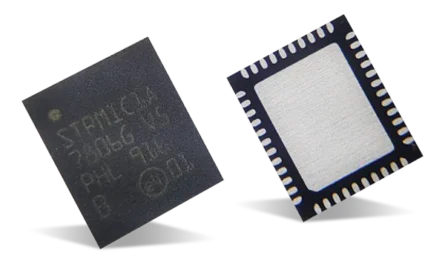A docking station is a device that connects multiple peripherals like monitor, keyboard, mouse, storage devices etc to a laptop or other portable electronic device enabling it to function like a desktop computer. With people increasingly relying on laptops, tablets and smartphones as primary computing devices, docking stations have become an essential accessory allowing for expansive and comfortable use of mobile devices.
Types of Docking Stations
There are different types of docking stations available in the market catering to different types of portable devices:
Laptop Docking Stations
Laptop docking stations are by far the most common type allowing you to easily connect your laptop to various external devices and enhance the capabilities of your laptop. It expands the connectivity options of the laptop adding ports like HDMI, DisplayPort, Ethernet, USB etc allowing you to connect additional displays, external storage, mouse, keyboard etc. Major laptop manufacturers have proprietary docking stations perfectly optimized for their laptop models. There are also third party universal laptop docking stations compatible with multiple brands and models.
Tablet/Smartphone Docking Stations
These docking stations are designed for tablets and smartphones providing additional ports and enabling desktop-like usability of mobile devices. They can turn your tablet into a compact home or office workstation by connecting it to a larger monitor, keyboard and other peripherals. Some tablet docking stations also feature speakers and additional storage. Smartphone docking stations are typically simpler providing charging and audio/video output functionalities.
Features of Modern Docking Stations
With technology advancing at a rapid pace, docking stations today pack more features facilitating flexible working styles:
Multi Monitor Support: Ability to connect dual and even triple external displays enabling expanded workspace across multiple screens. This makes Docking Stations ideal for graphic, video and other visual work.
Thunderbolt Ports: High-speed Thunderbolt ports present in premium docking stations allow support for high-resolution 4K/5K displays along with fast data transfer up to 40Gbps.
USB Type-C Support: Many latest docking stations employ USB Type-C connectivity supporting video and power delivery over a single port. This brings unmatched convenience and versatility.
Fast Charging: Capability to charge supported devices at high wattage allowing for speedy charging even during active use. Important for mobile centric workflows.
Enterprise Security: Features like fingerprint readers, smartcard readers and other biometric authentication mechanisms in enterprise-grade docking stations enable robust security.
Expanded Storage: Additional SSD/HDD slots let you expand storage capacity massively while the internal drives are connected over the docking station interface.
Use Cases of Docking Stations
With their enhanced connectivity and power, docking stations greatly augment productivity in following scenarios:
Office Setup: Docking station turns laptop into a fully-fledged office desktop by connecting to multiple large monitors, full-size keyboard and mouse along with external drives and printer.
Gaming: Ability to leverage high-end monitor along with other gaming peripherals through docking station enhances laptop gaming experience.
Video Editing/Design: Multi-monitor support offered by docking station coupled with fast SSD storage boosts graphics/media workflow.
Remote Working: Employees can seamlessly transfer work between home and office setup using centralized docking station reducing reliance on Wi-Fi networks.
Hospitality: Hotels deploy docking stations in conference rooms allowing convenient sharing of laptop display over projector while charging phone/tablet.
BYOD: Organizations can adopt Bring Your Own Device policies securely enabling employees laptops on office docking stations through standardized ports.
To summarize, docking stations have revolutionized the portable computing experience by liberating devices from their physical input-output limitations. They empower seamless transfer of work between screens, locations and collaboration making modern flexible work a reality. With continual advancements in technology, docking stations are sure to become more sophisticated and indispensable computing peripherals in the future.
*Note:
1. Source: Coherent Market Insights, Public sources, Desk research
2. We have leveraged AI tools to mine information and compile it


